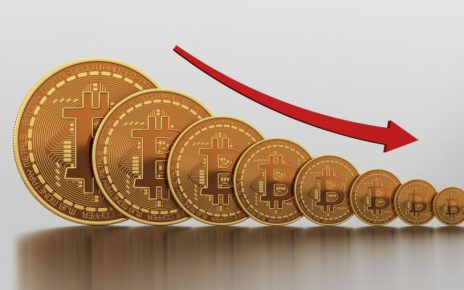Owners of cryptocurrencies are exposed to different types of frauds. According to recent information published by the media, numerous cases of fraud related to the cryptocurrency sector were reported in the United States of America, Vietnam, Canada and the Philippines. The affected people were tricked after they invested money in fraudulent initial coin offerings (ICOs) and multilevel ghost companies. Moreover, some of the victims were extorted.
According to various reports published in the media, the tricksters use traditional methods to contact the people, such as post and phone calls, including a referral system when it comes to the multilevel companies.
A local media outlet in Vietnam reported a case of a group of people who protested in front of the office of a company called Modern Tech in Ho Chi Minh. The company is accused of cheating 32,000 investors through initial coin offerings for two tokens: Ifan and Pincoin. This way, Modern Tech was able to raise around 660 million US dollars.
The investors were promised a return on their investments of 48% of their initial investments and a total recovery of their earnings in four months, as well as an 8% commission for each new member they brought to the network. In reality, the earning were only shown in the system, but the money could never be withdrawn.
According to the official investigation by the Vietnamese authorities, seven Vietnamese were leading the company and lurking investors by organizing conferences in various cities around the country.
At the same time, in the Philippines, a couple was arrested something over a week ago and accused of cheating cryptocurrency investors. According to the media report, the arrested couple found 50 people through a company called NewG. This company attracted investors in bitcoins by promising them a return of 30% with payments every 15 days. However, last December, the company announced on its social network accounts it could not issue payments any more.
One of the most known cases on an international level when it comes to the multilevel schemes to attract investors is the case of One Life Network, a company whose scheme was used to recruit new participants using a digital currency called OneCoin.
The company was accused in various countries and it is under investigation in many of them, while some decided to prohibit its operations. Recently, the Central Bank of Samoa launched an investigation of OneCoin and Italy prohibited its operations.
Another type of fraud appeared in the province of Alberta in Canada. This time the investors were attracted through phone calls. The clients of Epcor, a company providing gas and electricity services, started receiving calls from people who, on behalf of the company, requested a payment in cryptocurrencies with the threat of stopping the service.
The company had to issue a warning to its clients, but some of the contacted people had already made the payment, according to the local media. Tim le Riche, a spokesman from Epcor, said: “Our message to people is that it’s just not us. Epcor does not do business like this. “If there does happen to be any kind of billing issue with any customer, we always work with them. We talk to them many times. We work towards resolution. We would never make a sudden phone call to customer to say, ‘You’ve got to make a payment within an hour or we’re going to shut you down.’ We just don’t do that.”
Likewise, cases of extortion were reported in the city of Belmont, United States of America. Two residents of this Californian town received letters in which they were asked to pay 8,750 dollars in bitcoins. One of them was requested to make the payment in ten days or confidential information from his private life would be revealed. The other one was notified he was being investigated. This type of fraud using post (snail mail). Men around the United States have become targets of a blackmail scam with the goal of extorting cryptocurrencies from them.
One of the targeted people is Dave Eargle. He received a letter accusing him of cheating on his wife and asking him to pay 2,000 dollars in bitcoins in order to keep it a secret. Eargle said to CNBC: “And I had to think for a second because I was in a bit of a fluster, ‘Am I actually keeping a secret from my wife? It was scary because I felt like I was being targeted.” He posted the experience with the letter on his blog: “[My blog] had received maybe three, two hits a day. Suddenly, it jumped up to 200 a day during right after the waves [of letters], 200 a day, 300 a day. One of the waves, I got 500 visits. … I got a flood of new people saying, ‘I got very similar letter. What do I do?’ It was really comforting to find out that I wasn’t probably being necessarily targeted, that this was just part of some more broad blackmailing scheme. The cost of an incorrect guess about someone being unfaithful is … the cost of a stamp these days, 50 cents. That’s not bad odds for an attacker.”
According to Patrick Wyman, a supervisory special agent from the FBI dealing with money laundering, the amount of money requested is not so high and someone might be willing to pay that amount to make the problem disappear: “They’re hoping that they might get lucky with someone who actually … [has] some infidelity there. And if they hit that target, that’s a person who’s probably willing to pay.”
When it comes to tracking down the blackmailer, Wyman said: “The idea behind virtual currency is that it hides behind this veil of secrecy that just because it’s letters and numbers in terms of an account number, and there’s no personal information associated with it, that law enforcement won’t be able to track it. Virtual currencies do make it more difficult to track, but not impossible.”
The risk of frauds related to the cryptocurrencies is increasing as the cryptocurrency market is growing. These kind of situations are concerning the authorities and they are trying to find new ways to control the risks and protect the citizens.




